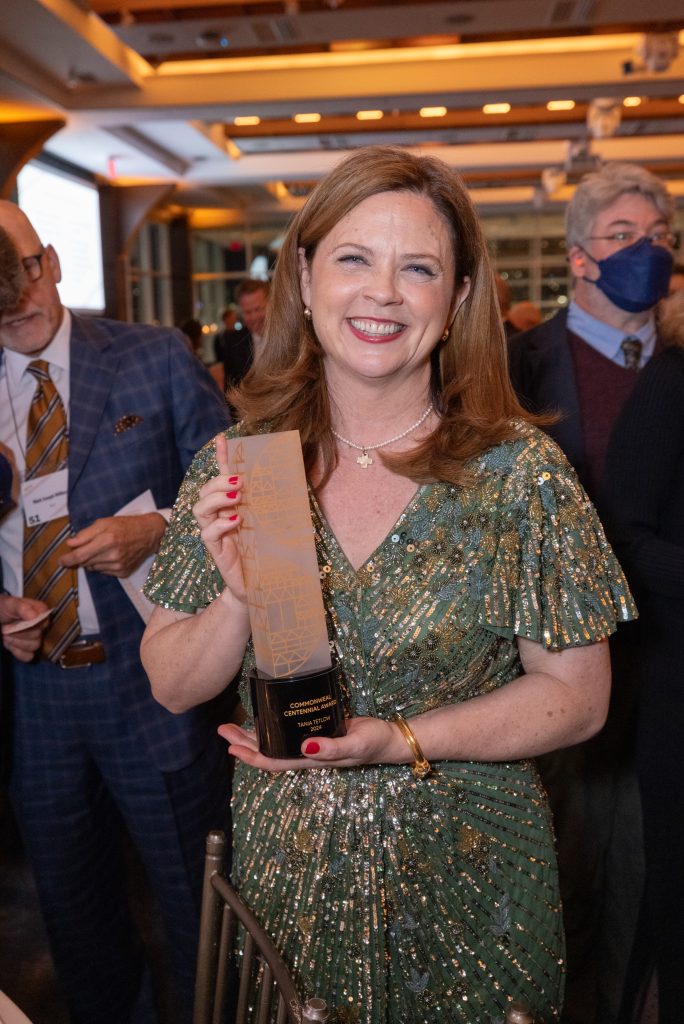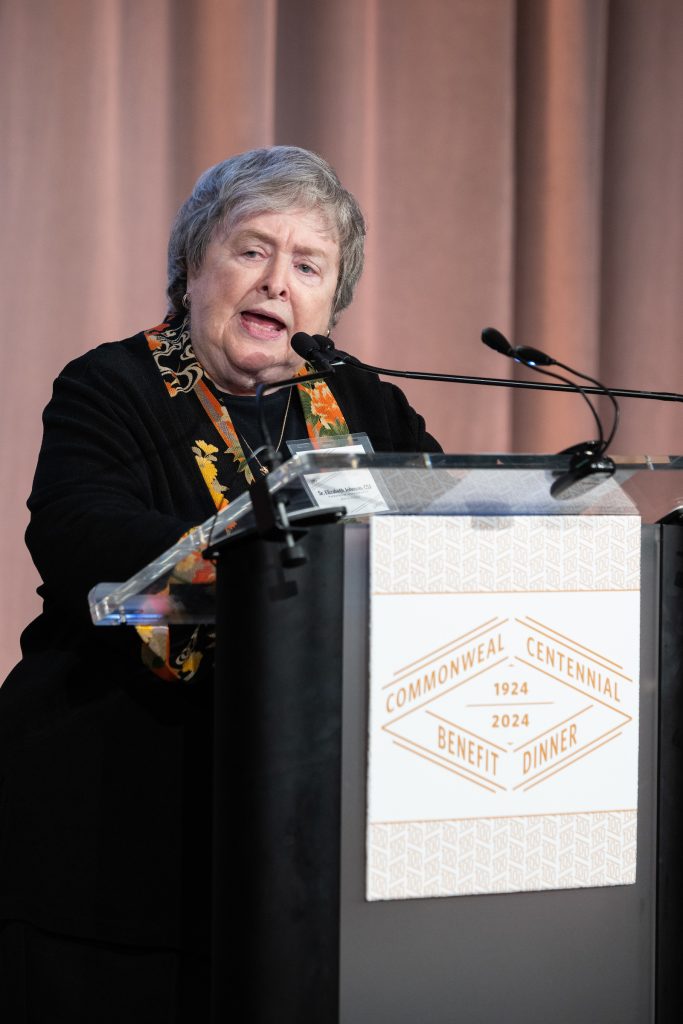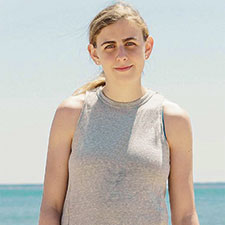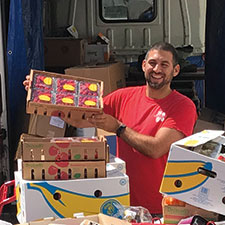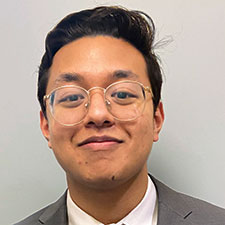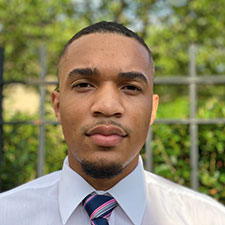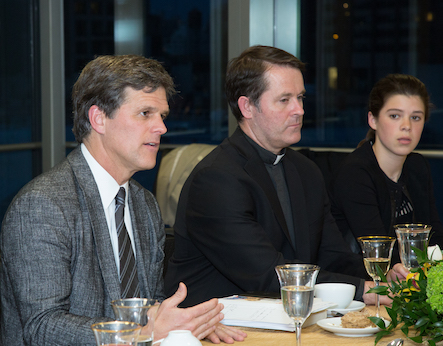The editors of Commonweal, an acclaimed journal of religion, politics, and culture, said they chose to honor Tetlow because of her trailblazing lay leadership and commitment to justice.
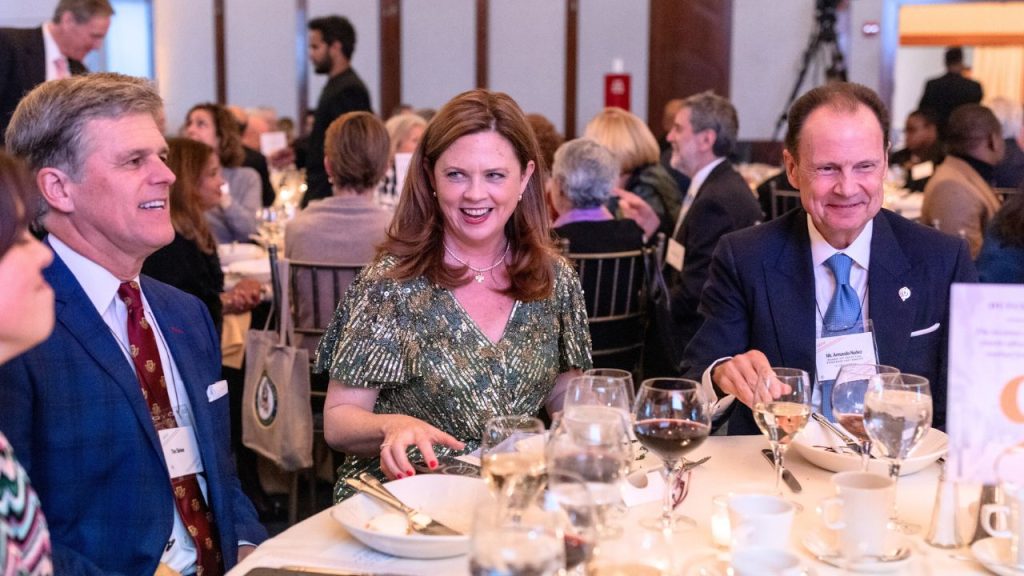
“Her attention to forming and informing the next generation of Catholics and all people of goodwill, and her spirit of knowledge-seeking and creativity exemplify the values Commonweal continues to embody,” they said.
For Tetlow, receiving an award from the renowned publication was an honor. “Commonweal embodies the best of the Catholic intellectual tradition, asking the critical questions, pushing on assumptions, seeking truth for a century,” she said. It “continues to lovingly push our church to read the signs of the times and to keep striving towards the truth of the Gospel.”

Tetlow is the first woman and the first layperson to lead Fordham, and according to Commonweal editor Dominic Preziosi, that’s part of what made her an ideal candidate for the Centennial Award.
“She’s an inspiring example who really aligns with Commonweal’s mission, and our belief in the importance of laypeople in matters of faith and leadership,” said Preziosi, a Fordham alumnus. He said Tetlow, who recently appeared on the Commonweal podcast, is “the perfect expression of the kind of community we’re building around as we launch into our second century.”
Fordham Board Chair Armando Nuñez and Kim Bepler, a Fordham trustee, were co-chairs of the dinner. “Tania is a gifted and charismatic leader who is both entrepreneurial and a fierce advocate for Fordham and Jesuit traditions,” said Nuñez. “As president, she is a faith-first leader, called to the service of the University community every day.”
Several other friends of Fordham were on hand for the ceremony. Timothy Shriver, the disability rights activist, presented Tetlow with the award. Shriver received an honorary degree from Fordham in 2019 and delivered the keynote address at that year’s commencement.
Elizabeth Johnson, C.S.J, professor emerita of theology at Fordham and an award-winning author, delivered the invocation and touched on Tetlow’s unique role as a layperson leading a Jesuit institution.
“Thank God for the laity,” she said. “Thank God that in an era when the expected lay role was to pay, pray, and obey, some few decided to raise their distinct lay voices to explore how Catholic faith could intersect with culture and politics—critically and fruitfully.”
Commonweal, which was recently profiled in the New York Times on the occasion of its centennial, produces a print magazine, podcasts, live and virtual events, and local community gatherings centered on reflective discussions of faith, public affairs, the arts, and the common good. Its past contributors include Dorothy Day, W.H. Auden, Hannah Arendt, John Updike, and Graham Greene.
]]>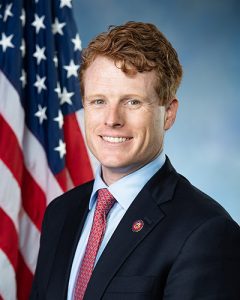 As U.S. Special Envoy to Northern Ireland for Economic Affairs, Kennedy is working to promote peace, prosperity, and stability throughout the region. Before assuming this role in 2022, he was a four-term member of Congress who represented the 4th Congressional District in his home state of Massachusetts.
As U.S. Special Envoy to Northern Ireland for Economic Affairs, Kennedy is working to promote peace, prosperity, and stability throughout the region. Before assuming this role in 2022, he was a four-term member of Congress who represented the 4th Congressional District in his home state of Massachusetts.
He is also a grandson of Robert F. Kennedy, who once famously urged Fordham graduates to be agents of good in a world “aflame with the desires and hatreds of multitudes” during his own commencement address at the University, in 1967, when he was a U.S. senator from New York.
“I’m excited and grateful that we’ll be hearing from Joe Kennedy as we celebrate our graduates on May 18,” said Tania Tetlow, president of Fordham University. “His work in Northern Ireland points to an important truth about our bitterly divided times. The process of achieving peace and stability in this region offers hope for defusing even the most intractable conflicts, and we commend him for his efforts to sustain this progress.”
Tetlow noted how Kennedy’s career echoes the intentions behind the founding of Fordham. Archbishop John Hughes—who was Irish American, like the Kennedy family—established Fordham in 1841 as part of his efforts to create opportunity for struggling immigrants from the Emerald Isle. “The experience of the Irish, in their homeland and in America, has special resonance for us at Fordham,” she said.
A Career of Service
Kennedy graduated from Stanford University and Harvard Law School, spent two years in the Peace Corps, and worked as an Assistant District Attorney in Massachusetts before winning election to the U.S. House of Representatives in 2012. In Congress, Kennedy “built an impressive legislative record around economic policy, health care, and civil rights,” according to the U.S. State Department website.
Kennedy also serves as President of the nonprofit Citizens Energy, which meets low-income families’ energy needs, and is the founder of Groundwork Project, an advocacy group that supports community organizing in historically disenfranchised areas. He is a board member of the Woodwell Climate Research Center, the Edward M. Kennedy Institute, Robert F. Kennedy Human Rights, Harvard Institute of Politics, and the Massachusetts Association of Mental Health.
On May 18, he will become the fifth Kennedy to receive an honorary degree from Fordham. His grandfather received one in 1961, when he was U.S. Attorney General, six years before giving his commencement address. His great-uncle John F. Kennedy received an honorary degree at a Fordham Law Alumni Association luncheon in 1958 as a U.S. senator, two years before being elected president of the United States. His great-uncle Ted Kennedy, a U.S. senator from Massachusetts, received an honorary degree and delivered the commencement address in June 1969. And his great-aunt Jean Kennedy Smith, U.S. ambassador to Ireland from 1993 to 1998, received an honorary degree at Fordham’s commencement in 1995, when the speaker was Mary Robinson, president of Ireland at the time.
Two other members of the Kennedy family received honorary doctorates from Fordham and delivered a commencement address at Rose Hill: Special Olympics chairman Timothy Shriver, Ph.D., in 2019, and his father, Sargent Shriver, the first leader of the Peace Corps, in 1963.
In announcing Joe Kennedy’s appointment as U.S. Special Envoy, U.S. Secretary of State Anthony J. Blinken noted the United States’ commitment to supporting “the peace dividends of the Belfast/Good Friday Agreement,” referring to the 1998 accords that largely ended the political violence in Northern Ireland known as the Troubles.
“Joe has dedicated his career to public service,” and “he will draw from his extensive experience to support economic growth in Northern Ireland and to deepen U.S. engagement with all communities,” Blinken said.
The 2017 departure of the United Kingdom—which includes Northern Ireland—from the European Union has led to trade and border disputes with the Irish Republic, as well as calls for reunification of Ireland.
Speaking last year in Belfast, Northern Ireland, at a conference marking the 25th anniversary of the Good Friday Agreement, Kennedy noted the importance of overcoming divisions and building shared prosperity.
“If there’s a place on this planet that is resilient, that is capable, that is clear-eyed and scrappy enough to take on this challenge, it is the shores we stand on today,” he said. “You have wrestled through hundreds of years of division, tribe and tradition, country and creed, pain, hurt, and loss, and you are still here. You are building a Northern Ireland where the troubles of the past give way to the triumphs of tomorrow.”
]]>
We connected with some of the countless Rams bringing people together to repair and lift up their communities.
A Pro Runner Blows the Whistle on Abusive Training Culture
In 2013, at age 17, Mary Cain was one of the top runners in the world, the youngest U.S. athlete ever to compete on a World Championships team. But soon after joining Nike’s elite Oregon Project to train with head coach Alberto Salazar, her health and her promising pro career deteriorated.
Her coaches forced her to lose weight, which led to the loss of her period for three years and stress-related injuries, including five broken bones, Cain said.
“You don’t go from losing weight to breaking bones in two days, right? There’s usually this long period of time where there’s this physical deterioration,” Cain said at Fordham’s ninth annual Sports Business Symposium, held virtually on March 25. “Throughout the day, I just was more prone to having silly things, like headaches, to just being more hungry, to being a little bit more irritated as a result, and to just being visibly fatigued.”
She began to dread the sport she had loved since fifth grade. Her physical, emotional, and mental health began to spiral downward. She developed an eating disorder and began to cut herself and have suicidal thoughts.
“What once had been something that came naturally to me, this beautiful experience … suddenly became a slog,” Cain said. “The longer that I was in this really circular system, the more my body broke down.”
Cain completed one year at the University of Portland while training with the Oregon Project before transferring to Fordham’s Gabelli School of Business, where she earned a bachelor’s degree in 2019. After moving to New York, she kept training with the Nike project until 2016.
In a November 2019 video piece for The New York Times, Cain said the all-male coaching staff, led by Salazar, did not include a certified sports psychologist or certified nutritionist, and that Salazar had tried to put her on birth control pills to lose weight and harmed her mental health by berating her and humiliating her in front of her fellow athletes.
“Women in sports are treated harsher when it comes to body image,” she said during the Fordham symposium in March. “And I believe the reason is mostly societal—the expectation to be a lighter weight is more attached to [women’s] looks and their meaning. And it’s this really toxic culture that I think permeates professional sports.”
After Cain’s story came out, many other women supported her claims, including Kara Goucher, an Olympic distance runner who had trained under the same Nike program. Salazar denied the allegations of abuse, but several weeks before Cain’s story was published, he received a four-year ban from the sport for doping violations, and Nike had already shut down the Oregon Project.
In January 2020, Nike completed an internal investigation of Cain’s allegations of abuse, and her story helped Nike identify initiatives to “do better in supporting female athletes,” including increasing the number of women coaches in sports and investing in scientific research into the impact of elite training on women and girls.
Today, Cain is the New York City community manager for Tracksmith, a running apparel company. She runs professionally as a member of USA Track & Field and continues to call for reforms, including having teams provide mental health counselors and sports psychologists who are separate from the coaching staff.
She said her goal in sharing her story is to make sure that no other athletes, particularly female athletes, have to go through the suffering she did.
“I hadn’t known that the situation was bad until somebody [told me], ‘That is bad. That shouldn’t happen to you.’ It’s normalized,” she said.
“I realized I didn’t want any other person out there to … be self-loathing, beat themselves up, and have this incredibly negative experience because they were under an emotionally abusive coach and almost didn’t know it.”
—Kelly Kultys, FCRH ’15
A Gun Violence Survivor Works to Heal Social Divisions
Lamont Young knows something about forgiveness and bridging interpersonal divides.
In 1993, he almost died after being shot seven times in the chest—point blank—by an acquaintance who was high on PCP. But he later found the strength to forgive his assailant, and in doing so, he was inspired to pursue a lifelong path of helping others.
That path eventually led him to the Graduate School of Education, where he earned a master’s degree in mental health counseling in 2018.
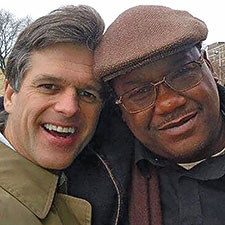
Then he made a career move that led to a personal transformation. He went to work with UNITE, a national initiative co-founded by Special Olympics Chairman Timothy Shriver that seeks to help Americans overcome divisions, and he gained a new perspective.
“I went in with this psychological approach to addressing the human condition and suffering caused by racism and discrimination. I had a burning desire to promote human dignity and shed light on segregation and dehumanization, but I was so caught up in my head trying to find ways to address this,” he said.
“Once I met with the UNITE team, I had a spiritual awakening. I started to address them not from my mind or from my heart, but from my spiritual background. It was transformative to understand that in spite of it all, we have to love, we still have to forgive.”
Young and his mother, Glenda, are featured in The Call to Unite: Voices of Hope and Awakening (Penguin Life/The Open Field), published in March. The book contains an interview with them conducted by Shriver, who knew Young from a young men’s group he once led in New Haven, Connecticut.
“A mother who raises a son who can take on the hardscrabble and often fatal streets of New Haven and not only come through it but come through it with forgiveness and an open heart—that’s a mother I want to learn from,” said Shriver, who spoke about the power of personal transformation at Fordham’s 2019 commencement ceremony, where he received an honorary doctorate.
Shriver said the book’s common thread is that when we treat ourselves and others with dignity, we unlock potential, even during disagreements.
“This is hard emotional, spiritual, political work,” he said. “If you want a quick solution, this is the wrong place. But if you want the best solution, there’s only one way, and that’s to unite.”
In addition to conducting research on dignity and respect for UNITE, Young works with people experiencing homelessness in New Haven at Columbus House and provides psychotherapy at Reliant Behavioral Health Community Service.
And he has learned about some new dimensions of forgiveness. “You can transgress against yourself by not forgiving yourself for some of the things that you haven’t done or some of the time you haven’t spent with your loved ones before they left this Earth,” he said. “I found that very powerful, to understand how to love and forgive yourself in the midst of turmoil and grief in order to free yourself.”
—Patrick Verel, GSAS ’15
A Nonprofit Leader Rescues Food Waste to Relieve Hunger, Promote Community
As the president and CEO of Community Solidarity, Jon Stepanian runs the largest vegetarian hunger relief program in the country. It’s a nonprofit he hopes doesn’t exist in a generation or two.
“When we started, we wanted to build a structure where we could theoretically put ourselves out of business in the communities where we operate,” Stepanian said. “We want to make sure that there’s going to be no need for us in 30 to 40 years if the community itself can take care of these needs.”
Based on Long Island, Community Solidarity rescues food from being wasted at supermarkets and farms and distributes it to people at food shares across four locations on Long Island and one in Bedford-Stuyvesant, Brooklyn. Each area, he says, is at risk of being a “food desert,” where fresh, nutritious, affordable food is hard to find.
“We rescue food waste because it’s common sense—it’s cheap to do it. But on a more philosophical level, on a more economic level, this is why people in our communities are struggling. We see it as a fundamental problem in our system that’s making people in our community poor and hurting people overseas and also destroying our environment by producing large quantities of stuff that we don’t need,” he said.
“We’re trying to rescue a small portion of that waste and repurpose it for something good, like feeding our neighbors, but we’re also trying to expose the problem.”
Stepanian knew he wanted to focus on helping local communities after graduating from Fordham. As an undergraduate, he studied history and political science—and an internship at the United Nations and a stint working at the American Civil Liberties Union gave him perspective on working within the intergovernmental and nonprofit sectors. Shortly after college, he and his friends started a Food Not Bombs chapter on Long Island, occasionally setting up a food distribution table on weekends.
Before long, he realized he needed to create a more sustainable structure to keep the food distribution going. Community Solidarity, with its 501(c)3 nonprofit status, was born out of this realization, although Stepanian said that a nonhierarchical structure was important from the outset.
“When we decided to become a nonprofit, we said we wanted no lines of demarcation between who can volunteer and who can get food,” he said. “We wanted to make it so you wouldn’t be able to tell if someone’s volunteering or in need or both.”
In a 2018 TEDxNYU talk, Stepanian talked about what he called “the myth of scarcity,” and how a communal response can not only address hunger but also help to create a deeper sense of belonging among neighbors.
“We’re also trying to raise awareness by saying that we will, in 10 years, be the largest hunger relief organization in the country, and we’re doing it for a thousandth of the price that the food banks are doing it, all because of this waste,” Stepanian said.
“This is how abundant that system of waste is. We want to make it eye-opening for people.”
—Adam Kaufman, FCLC ’08
A Familiar Face Offers Financial Literacy Training to Fellow Women of Color
As a young woman growing up in Brooklyn, Felicia Gomes-Gregory knew she wanted two things: to attend Fordham University and to work as a computer scientist. She achieved both.
But now, more than 30 years later, Gomes-Gregory is focused on something new, which she calls her passion project: Heels and Higher Achievement, a nonprofit that empowers women and people of color by helping them learn about finance.
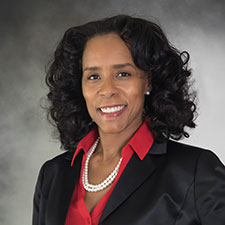
Her path to forming the nonprofit started in 2016, when she received what she calls a blessing in disguise. After a decades-long career at various financial firms in New York City, she was laid off from Neuberger Berman, an employee-owned investment management firm.
She asked herself what she would do next. “In my heart, I’ve always wanted to … get more women involved in technology or finance, and especially women of color, because I never saw anybody that looked like me—or not enough of it,” Gomes-Gregory said.
She kicked off Heels and Higher Achievement (HHA) in 2018, determined to make financial literacy fun while giving a voice to those in her community who are empowering young women in tech, finance, STEM, media, or “whatever it is that they want to do,” she said. “I wanted to create a forum so that people can speak, but mainly speak about financial education.”
That first year, she conducted in-person workshops at schools, churches, and “anywhere anyone would hear me,” Gomes-Gregory said. She’d speak about basic financial literacy concepts and invite people to schedule a complimentary financial review—a kind of “GPS of your money,” she said, “to make sure you can stop working for money at some point and [let]money work for you.”
She also launched an ambassador program to give young girls opportunities to network with professionals and serve their communities through volunteer work. But COVID-19 meant pivoting to online events and workshops in 2020.
In April, HHA sponsored its second annual series of online workshops for Financial Literacy Month, including, for the first time, programming for men. “[Because] of all of the things that were happening in the Black community— between George Floyd, the social issues, COVID—men need to talk, too,” she said.
The digital programming has gone well, she said. She’s hoping to launch a YouTube channel and resume in-person events soon.
“I’m learning that self-care and self-preservation—from a financial, physical, mental, and spiritual [standpoint]—are so very important,” she said. “And I didn’t learn this until I was 50. So, now I’m teaching all of the young ’uns. ‘Take care of yourself first. You’re important.’”
—Sierra McCleary-Harris
Students Share Their Expertise with Bronx Businesses
When the pandemic upended everything in March 2020, Rich Shrestha was working on a research project about consumer behavior in the Bronx. As the economy went into a tailspin, his mind went back to his childhood in New Haven, Connecticut, where his father ran a Subway franchise for a decade.
“I saw him always grinding away every day, putting in 12-hour days. So, I can sympathize with the small business owners who are trying to survive in the age of COVID,” he said.
Shrestha, a rising senior majoring in economics at Fordham College at Rose Hill and a member of the University’s Social Innovation Collaboratory, reached out to friends he thought might be interested in helping small businesses.
Diontay Santiago, then a senior majoring in marketing at the Gabelli School of Business, was one of those who answered the call. In June 2020, they launched the Fordham Business Development Collaboratory. The student-run group, comprising more than 70 members, is split into teams that assist clients with finance, marketing, compliance, technology, and communications. Students offer their advice free of charge, relying on lessons they’ve learned in classes. They also conduct research, develop industry reports, and create case studies and videos for Bronx businesses.
For Santiago, who graduated from Fordham in May and had served as president of ASILI, the Black Student Alliance, the group has been a way to lift up the borough he has called home his whole life. “Doing this sort of thing weds the school to its actual geographic location and allows it to give back to the community it’s inhabited for the last two centuries or so. So when Rich presented me with the opportunity to work with him, I jumped at it.”
The group’s clients have included restaurants, nonprofits, a software company, and an insurance firm. In addition to word-of mouth and its website (fordhambdc.org), the group has connected with clients through the South Bronx Overall Economic Development Corporation.
Sadibou Sylla, the interim director of Fordham’s Social Innovation Collaboratory and an adjunct professor at the Gabelli School, said that all who contribute to the group personify what it means to be a “changemaker.”
“They understand that it is only in serving all that we serve ourselves,” he said, “and that business is nothing but an instrument for helping society.”
Shrestha is optimistic that the group will live on long after he and his classmates graduate.
“This is an opportunity to gain an understanding of the community you’re in, and how we can be a better part of it and better neighbors,” he said. “I think a lot of students are starting to realize how important that is.”
—Patrick Verel, GSAS ’15
Do you know a Fordham “Changemaker”?
Who are the unsung Rams working to foster collaboration and change in your community? Tell us about the people whose stories you’d like us to share. Write to us at [email protected].
A year later, Timothy Shriver, Ph.D., a former chairman of the Special Olympics who counseled Young in the early ‘90s, spoke at Fordham’s Commencement ceremony, telling graduates that if they transform themselves, they can “transform the world.”
Now they’re transforming the world together through a group called UNITE, founded in 2019 with the goal of helping Americans overcome division. In May 2020, organizers staged Call to Unite, a live online fundraiser that raised more than $85 million dollars for the charities GiveDirectly and Points of Light. GiveDirectly lets donors send money directly to the world’s poorest residents, while Points of Light coordinates with a network of volunteer-mobilizing organizations in 37 countries around the world.
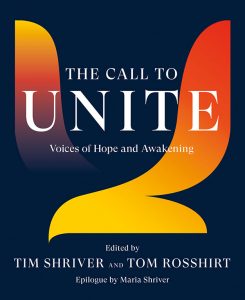 As part of that event, Shriver interviewed Young and his mother Glenda about how Young managed to forgive his assailants after being shot seven times point-blank in the chest in 1993. The interview was published in The Call to United: Voices of Hope and Awakening (Penguin Life/The Open Field, 2021) a volume of poems, essays, prayers, and insightful conversations published in March.
As part of that event, Shriver interviewed Young and his mother Glenda about how Young managed to forgive his assailants after being shot seven times point-blank in the chest in 1993. The interview was published in The Call to United: Voices of Hope and Awakening (Penguin Life/The Open Field, 2021) a volume of poems, essays, prayers, and insightful conversations published in March.
“A mother who raises a son who can take on the hardscrabble and often fatal streets of New Haven and not only come through it but come through it with forgiveness and an open heart, that’s a mother I want to learn from,” said Shriver, who met Young when he led a young men’s group in the Connecticut city, rampant with gangs and drugs at the time. The pair spoke to Fordham News during a joint Zoom call.
Carrying the Power of Painful Lessons
“Lamont’s crossed every divide, and he can carry the power and passion of what he’s learned by doing that. They’re painful lessons sometimes, but those are the divides we all have to cross.”
Shriver said the book, which features contributors such as author Elizabeth Gilbert, megachurch bishop T.D. Jakes, podcast host Krista Tippett, chef José Andrés, Pastor Rick Warren, Deepak Chopra, and singer Amy Grant is meant to be a companion to people who are hurting.
“There are millions of Americans who are eager to cross boundaries, to live with a sense of dignity and respect for other people, and solve big problems,” he said.
“Our vision was to create a meeting space for people, and that’s what led to this great outpouring in May of stories and experiences where people said, “Here’s how I would do it. Here’s the way I would respond. Here’s how I would work to cross boundaries.”
Since graduating from the Graduate School of Education, Young has held several positions and internships in the counseling field. Currently, he does research on dignity and respect for UNITE, works with the homeless in New Haven at Columbus House, and provides psychotherapy for clients at Reliant Behavioral Health Community Service, a social service agency. Being part of the UNITE group has been transformative, he said.
A Spiritual Awakening
“I went in with this psychological approach to addressing the human condition and suffering caused by racism and discrimination. I had a burning desire to promote human dignity and shed light on segregation and dehumanization, but I was so caught up in my head trying to find ways to address this,” he said.
“Once I met with the UNITE team, I had a spiritual awakening. I started to address them not from my mind or from my heart, but from my spiritual background. It was transformative to understand that in spite of it all, we have to love, we still have to forgive.”
That willingness to forgive also needs to be internal though, he said, noting that his mother was also able to forgive herself for not spending as much time with her sons.
“You can transgress against yourself by not forgiving yourself for some of the things that you haven’t done or some of the time you haven’t spent with your loved ones before they left this Earth. I found that very powerful, to understand how to love and forgive yourself in the midst of turmoil and grief in order to free yourself,” he said.
Unity Is Critical During a Pandemic
Shriver said the pandemic has made the work even more important.
“You can’t solve COVID in an oppositional worldview. One infected person can destroy the entire planet. It’s not an ‘us versus them’ solution,” he said.
The common thread to all the book entries, he said, is that when we treat ourselves, and others with dignity, we unlock potential, even during disagreements. He cited the ABCs set forth by psychologist Rheeda Walker, Ph.D.: Assume you can help, Be a good listener, and Cancel judgment.
“Assume you can help? That’s the old message of service,” he said.
“Be a good listener? That’s the old message of receptivity and compassion. Cancel judgment? That’s the message of forgiveness, from the cross through to the prodigal son,” he said, noting that it’s harder than it may sound.
“Most of us would rather focus on whether or not somebody cut us off at a stop sign because that’s easy. The real work is what Lamont has just described his mother as a role model of, and man, can’t get any bigger than that.”
Shriver is under no delusions about the task ahead. Nearly one in three Americans have broken off a relationship with a loved one, he said, thanks to profound spiritual and political disagreements.
“Someone wrote the other day, ‘Uniting people is not a pussy cat. It’s a tiger.’ This is hard emotional, spiritual, political work. If you want a quick solution, this is the wrong place. But if you want the best solution, there’s only one way, and that’s to unite.”
]]>“Fordham University is proud to confer an honorary doctorate upon Timothy Shriver,” said Joseph M. McShane, S.J., president of the University. “If Fordham were only considering Dr. Shriver’s many accomplishments in education, childhood development, and special athletics, they would be more than enough to merit the honor. In conferring this degree, however, we also acknowledge a man who could have chosen any path in life but elected to devote himself to the welfare of society’s most vulnerable members. In this, Dr. Shriver exemplifies the highest of Fordham’s ideals and the best in all of us.”
An educator, author, and activist for social change, Shriver has spent his career working for the dignity and fulfillment of young people. In 1996, he joined the Special Olympics, founded by his mother, Eunice Kennedy Shriver, when he was a child. Under his leadership, it has become a beloved global organization that promotes health and education through sports, supporting more than 5 million athletes with physical and developmental disabilities who take part in over 100,000 annual competitions.
Earlier in his career, Shriver worked as a teacher in the New Haven, Connecticut, public schools, where he helped establish social and emotional education programs in an area plagued by violence and drugs. During a visit to Fordham in 2016, he talked about the importance of mindfulness at a time when so many young people are facing anxiety and depression.
“The silence that has come to us from contemplative practice can be . . . a source of direct experience of one’s goodness,” he said.
“The primary vector of discovery is of your own self-judgment. And when you finally start to unmask your own judgment, you get to the point where you can see a little more clearly.”
Shriver was a producer on four films including the 1997 Steven Spielberg film Amistad. His 2014 book, Fully Alive: Discovering What Matters Most, recounts his personal spiritual journey and vision of inclusivity.
Through its own commitment to service and education, Fordham shares many connections to Shriver and his family. The University ranks among schools that produce the most volunteers for the Peace Corps, originally led by his father, Sargent Shriver, who received an honorary doctorate at Fordham’s 1963 commencement. His son Tim has served as president of the Jesuit Volunteer Corps, where many Fordham students volunteer after graduation. And his daughter Caroline graduates this May as a member of the Fordham College at Lincoln Center Class of 2019 with an Ailey/Fordham B.F.A. in dance.
Six other notable figures will receive honorary degrees at commencement. Fordham will grant a doctorate of humane letters to Ellen R. Alemany, chairwoman and CEO of CIT Group and CEO of CIT Bank, N.A.; Bob Casey, U.S. senator from Pennsylvania; Yueh C. Chen, secretary of the J. T. Tai & Company Foundation; Joseph P. Parkes, S.J., provincial assistant for secondary and pre-secondary education for the Maryland and USA Northeast Provinces of the Society of Jesus and a former Fordham trustee; and David Ushery, NBC News 4 New York news anchor and reporter. Alemany will be the speaker at the diploma ceremony for Gabelli School of Business master’s degree candidates on May 20. The Honorable Pamela K. Chen, United States District Court judge for the Eastern District of New York, will receive an honorary doctorate of laws and will speak at Fordham Law School’s diploma ceremony on May 20.
]]>
